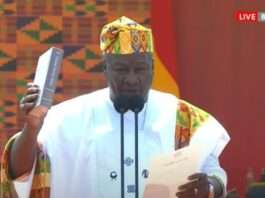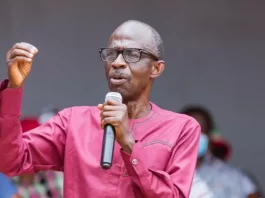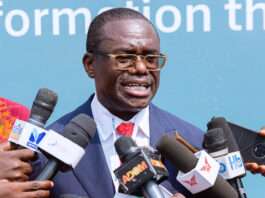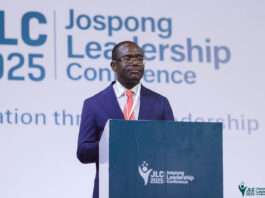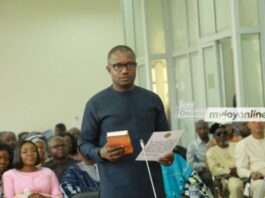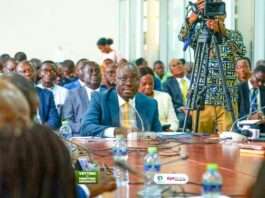By Ahmed Osumanu Halid, Nima 441
Ghana has three main religions. These are Islam, Christianity and Traditional.
The dominant ones are Islam and Christianity.
The centrepiece of practising religion is to worship the Creator and honour Him.
It is also to commune with Him and seek His blessings and protection in our daily activities.
In the books of the Creator, He states that no one has the power to compel or force any person to belong to a particular religion. Therefore, religion is both a choice and right. As homo sapiens, we have these unique traits that distinguish us from other creatures. We can think, organize, socialize, interact and create.
Therefore, having the capacity to belong to any religion is one’s choice or right. Our nation is a secular state, that is, it is neither an Islamic or a Christian state. We are governed by the 1992 Constitution.
Both Muslims and Christians work together, educate together, belong to the various political and social groupings together, live together in the various compound houses and communities, play and socialize together and carry out other legitimate and legal acts together.
To a very large extent, both adherents co -exist peacefully. They denounce disputes.
They rather embrace love, peace and unity.
In our country today, the two most important personalities are adherents of the two dominant religions. The President, a Christian (Anglican) and the Vice President, a Muslim. They gel with one another for the sake and the betterment of our country.

There are many of our Ministers, Members of Parliament, who are also adherents of the two religions. Not forgetting members of Judiciary all working for our dear country. Currently, on the Supreme Court bench is a prominent Muslim called Justice Tanko.
Our 1992 Constitution, which is the supreme law of the country gives all citizens the rights to enjoy. Right to practice any religion is guaranteed by the Constitution. We have other fundamental human rights like education, life, owning of property, movement, association, marriage, health, privacy etc.
In article 12 (2) of the 1992 Constitution, it states that ‘Every person in Ghana, whatever his race, place of origin, political opinion, colour, religion, creed or gender shall be entitled to the fundamental human rights and freedoms of the individual contained in this chapter but subject to respect for the rights and freedoms of others and for the public interest ‘.
These are rights, not privileges.
It is only the courts through the laws that any of the rights of individuals can be taken away or truncated. And the application of any law to stall that right should not be in conflict with the Constitution.
Education is the acquisition of knowledge and skills. Its essence is to make an individual or beneficiary an asset to himself, the family, community and the country.
Educational institutions are learning centers that train and impart knowledge to the trainees or students.
They have rules and regulations that govern them, and those rules should be respected by all.
The management, trainers or teachers and the students.
These rules should not supersede be in conflict with the Constitution of the Republic, else they would be declared null and void by any court of competent jurisdiction when they are tested or brought before it.
In the case or matter between the Wesley Girls College and the Muslim student of the school, where the school declined the girl’s right from practising her religion, which created brouhaha in the country last year, very unfortunate.
Yes, the school has the right to enforce its rules and regulations but they must be done within the remit of the law.
Since the practice of the girl’s religion won’t in any way affect her and her colleagues, academically or morally, it would have been a travesty of justice to deny her from performing her religious obligations.
Yes, all human institutions are governed by the Constitution, laws and rules. Both the laws and the rules should conform to the supreme law of the land, the Constitution.
I hope our academic and other institutions will consult the national constitution in drafting or couching their rules of engagement so that they won’t be found wanting with the law.
Once again, religious practice is a constitutional right which cannot be taken away easily by any one or authority. Therefore, all must be allowed to practice their religion without any obstacle, at least within the space of the law.


